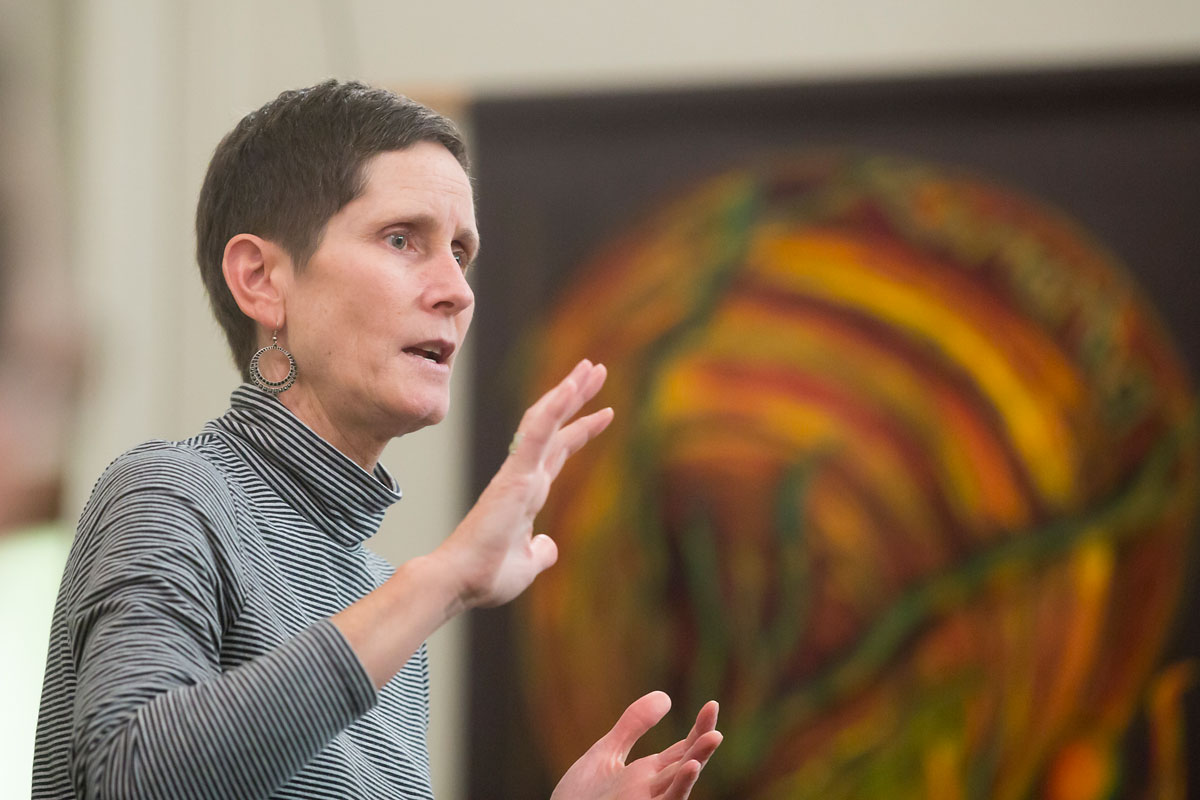As the Trump administration further unrolls its plan to arrest undocumented immigrants, churches across the country—from Denver to Alabama to Chicago–are offering space to house those threatened with deportation. Just last week cardinal Blase Cupich of the Archdiocese of Chicago sent out a letter to priests asking them to not allow federal agents onto church property without a warrant. Churches are considered “sensitive locations,” as ordered by a 2011 Immigration and Customs Enforcement memo, a designation that still stands. But with ICE agents feeling increasingly emboldened, what will become of the sanctuary movement in the age of Trump?
In the weeks surrounding the presidential inauguration last January, the leadership staff at Lincoln Park Presbyterian Church elected to become a sanctuary church. At the moment, the church is converting a couple of its rooms into an apartment-style living space where they can eventually house individuals. Rev. Beth Brown, pastor of Lincoln Park Presbyterian Church, recently told BuzzFeed News that the sanctuary movement might even have to “go underground.”
I recently spoke with Rev. Brown to talk about the church’s role in the sanctuary movement in Chicago and what it would mean for the movement to go underground.
Why did your church decide to become a sanctuary?
The church that I serve, Lincoln Park Presbyterian Church, was involved in the sanctuary movement about three decades ago when there was a concerted and organized movement. At that time, my church didn't feel like it could give physical sanctuary to someone because they were already hosting an emergency rotating shelter, and [they] thought that that it might be too much to do both things at the same time. In the lead-up to the election, we started having very intentional conversations about what our role was going to be this time around. At that time there were only a few churches in Chicago that said that they would actually provide physical sanctuary so we were surprised by the need for more.
What does it mean to be a sanctuary church?
Along with being involved with all of the other aspects of the sanctuary movement, which includes advocacy and trying to change policy, we will be a church that provides physical sanctuary. We're going to create a couple rooms that we've been using for storage into a very small apartment living space.
You recently told BuzzFeed News that the sanctuary movement might have to go underground. What might that look like?
If deportations start happening at a rapid pace, then I think there is some conversation that maybe the movement would go underground. At some point we could be approached and asked to provide someone sanctuary and not to make it public at all, which we would of course do. Because the point of doing it is not for publicity, the point of doing it is to try to keep someone from being separated from their family.
We were watching a video about a church in Austin, TX that provided sanctuary for a woman and her son and somebody asked, why would you think about getting in the way of law enforcement or ICE agents? And my friend who is a pastor there said, “This woman and son are part of our family now. Wouldn't you do the same thing to protect your family?” And I think that really hit home for us. If we were in the same boat and felt like these people or this person is our family, certainly we would try to do what we could to protect them.
Because of the little bit of publicity that my church has had, I have been receiving emails from people all over the country offering their homes as part of the underground railroad, and I’m so inspired by that. We can all hope that the current administration would sort of abide by some of the values and processes that have been put in place in the past. But I think from what we've seen so far, it’s very possible that those things won't be honored or respected. I think we saw that with the ban. So I think right now, it seems like the best thing to do is to hope for the best and prepare for the worst.
What role can faith communities play in protecting immigrants?
I don't know if you heard about that church in northern Virginia where they have a hypothermia shelter where people experiencing homelessness can come in and warm up. There were ICE agents that were waiting across the street from this church, and they ended up picking up six guys when they left the shelter. And people were furious. People need to be ready to stand up and say, no way, you cannot do this. You are interfering with the church being able to be the church, which is a place that is supposed to provide hospitality and be on the side of people who are vulnerable and marginalized. And so it's absolutely incumbent upon faith communities to speak up, to stand up, to get in the way, to interrupt, to resist, to do all the things to keep people safe.



